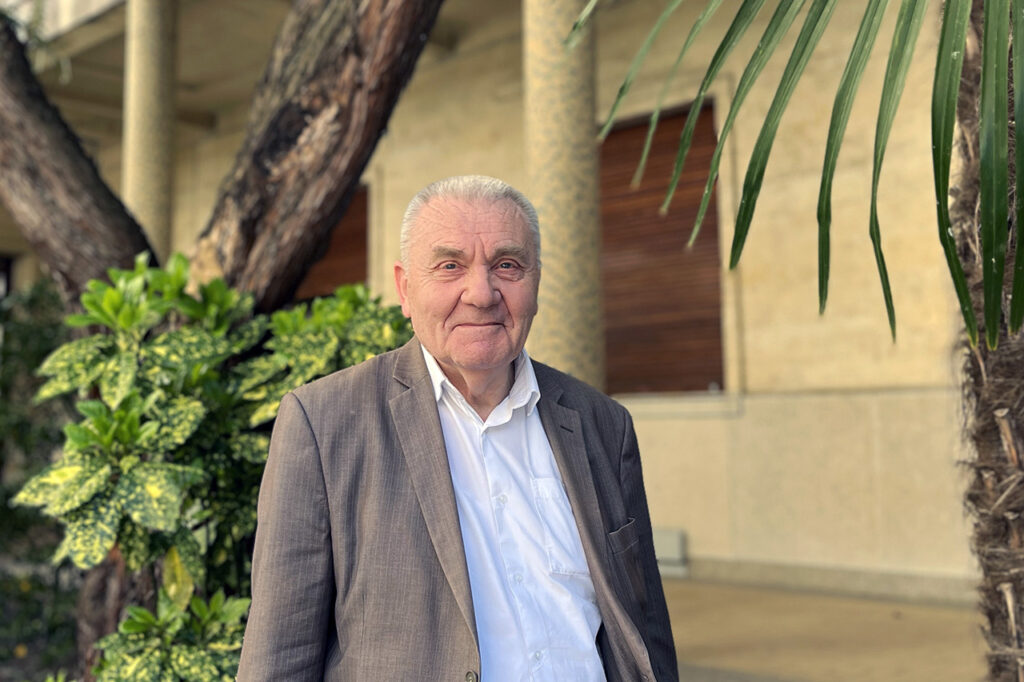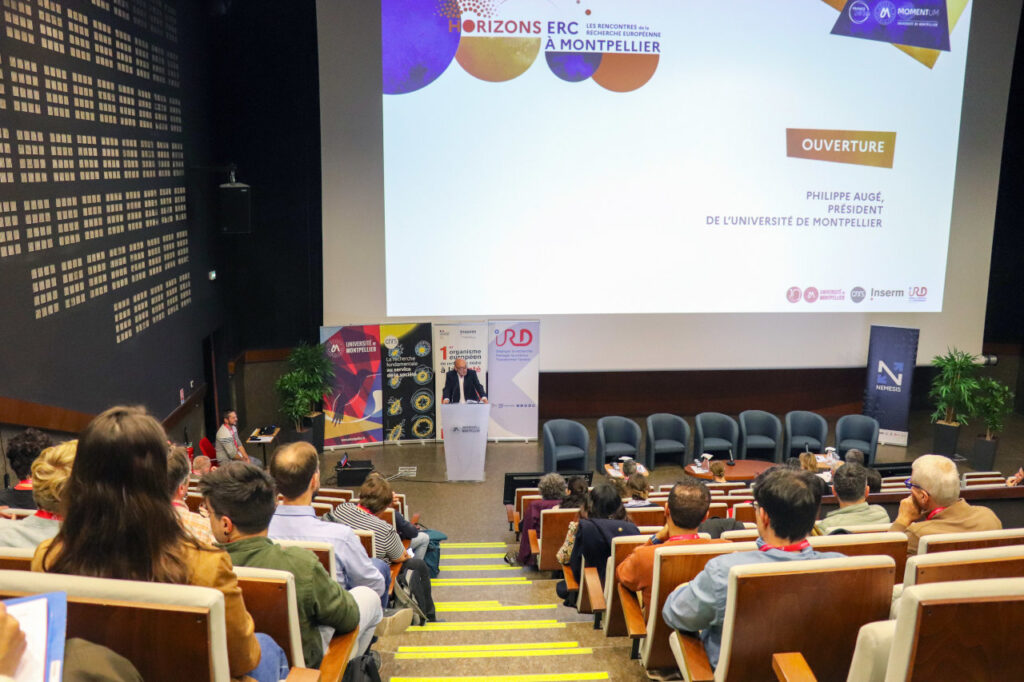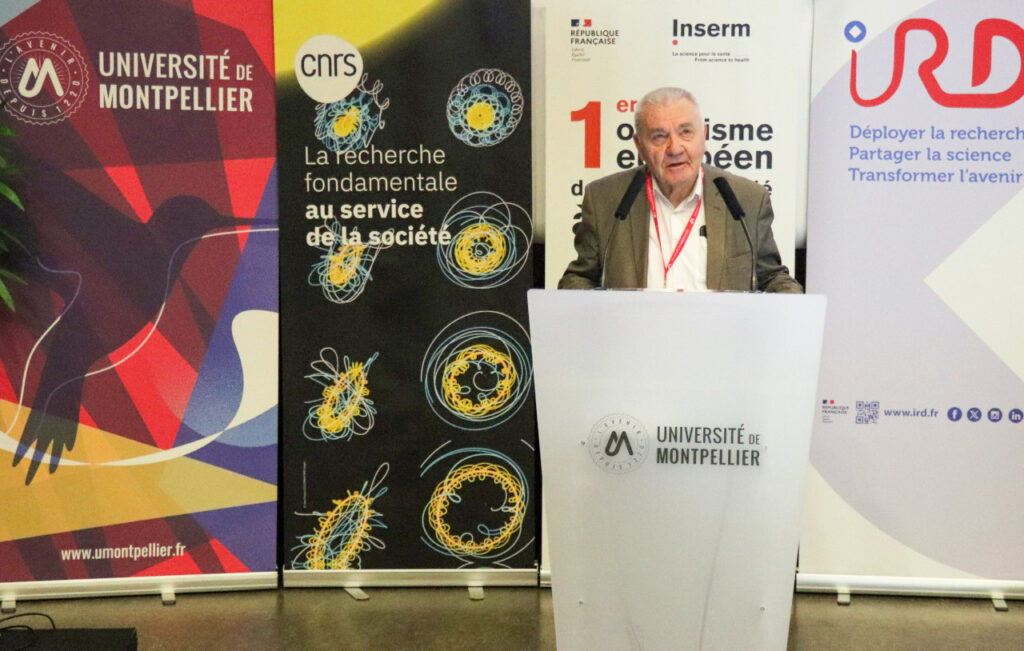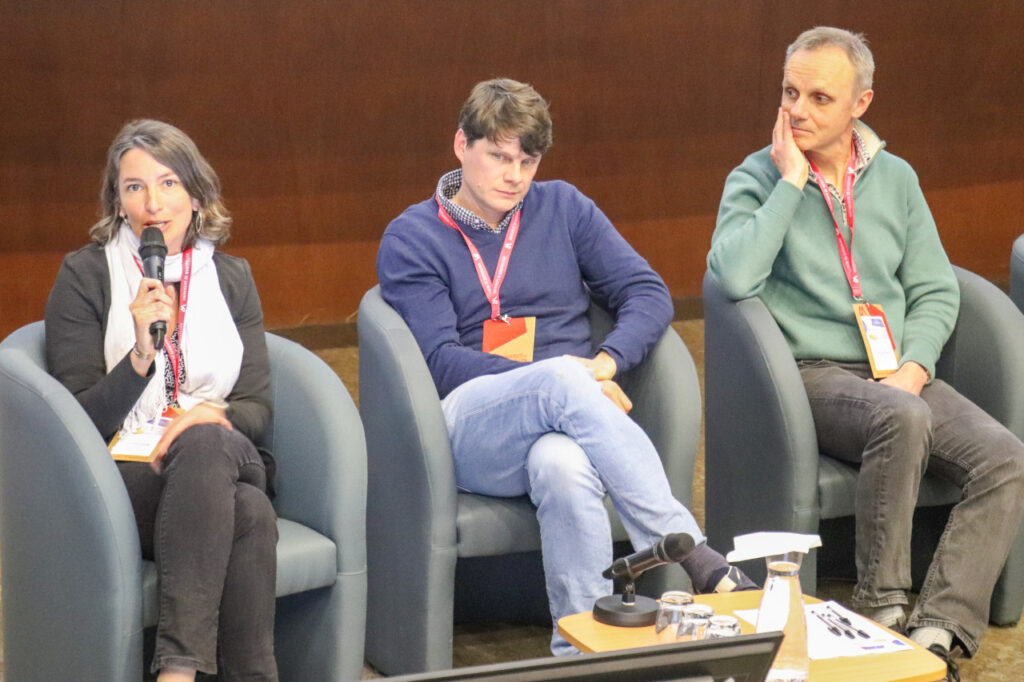ERC Horizons: boldness at the frontiers of research
Between 2014 and 2021, mathematician Jean-Pierre Bourguignon served as president of the prestigious European Research Council (ERC) for seven years, including one year as interim president. On March 31, he took part in the event "ERC Horizons in Montpellier: European Research Meetings, " organized by the University of Montpellier in partnership with the CNRS, INSERM, and IRD. On this occasion, he shared his experience and his thoughts on the programs coordinated and funded by the European institution to support exploratory and daring research. He is convinced that more of our researchers need to apply and overcome their doubts at all costs!

Can we say that ERC contracts are intended to fund scientific projects "at the frontier of knowledge"?
We are talking about "exploratory" research projects, which means that the subject of your project is not yet well established, and above all that you are going to take risks. Because if you are exploring, you are not sure you will be able to see your idea through to the end. On the other hand, you are convinced that there is great potential, that you have an idea that no one else has thought about in depth yet. The members of the panel that will evaluate the project need to read your proposal and say to themselves, "This isa truly new idea that I wish I had thought of myself! "
For a researcher, it is not always easy to know whether their idea is a good one...
That's why I recommend testing your project with other people before submitting it, and not just with those in your immediate circle. This is how you will find out if what you think is a good idea really is one. On the other hand, if someone tells you , "You're dreaming, " don't be discouraged. Especially if, at the same time, others are telling you , "That's great!" In that case, don't hesitate to go for it!
Let's not forget one important quality: the ability to overcome failure!
It is very important not to be discouraged if you are not selected on your first attempt. On the contrary, study all the reports produced by the panel members on your project, which average between 6 and 11 if the project has been selected for an audition. When reading a report, you may sometimes disagree with the reviewer and feel that the criticism is unjustified. Be careful, even if you know exactly what you want to say, the panel members may read something other than what you had in mind. This highlights the importance of having your project read by different people beforehand. Proofreading not only improves the quality of your writing, but also removes ambiguities that could ultimately be detrimental.
Is boldness an essential element?
It is truly encouraging. We heard this from the testimonials of ERC grant recipients: many similar projects submitted to a national agency were rejected because they were considered too risky. However, when submitted to the ERC, they were successful on the first attempt. We see this not only in France but also in many other countries: ambitious and groundbreaking projects tend to be less well accepted and less supported than more routine and reassuring projects. The scientific community has a strong tendency to be conservative and not to value risk-taking. That is a fact. It is therefore vital that there be a program at the European level that does not have this negative bias against risk.
In your opinion, should our researchers be encouraged to apply more often?
France has a massive shortage of applications. If we don't have enough successful ERC projects in France, it's because the researchers working here aren't submitting enough applications... We really need to solve this long-standing problem. And it's getting worse! Given that research funding in France is stagnating at 2.2% of GDP, obtaining more money from the European budget is essential to better fund research in our country. When I speak on this subject, I don't talk much about the Nobel Prizes and Fields Medals won by ERC laureates. I prefer to highlight the 10,000 or so researchers who have been able to set up research teams thanks to the ERC. As France is one of the largest European countries, at least in terms of size, we should have a significant number of projects submitted, in line with the 18% of the European budget that France contributes. However, the percentage of applications from French institutions is only 12%, a figure barely offset by a success rate that is slightly above the European average.
However, there is no age limit, no field, no subject: anything is possible!
Absolutely. We have observed that the shortage of applicants in France is greatest in the humanities and social sciences. Listening to the testimonials of the winners, we can easily see how much of a positive, and often radically positive, impact ERC support has on their careers. Not only does it enable them to carry out an ambitious project, but it also generates a much higher level of international visibility and attractiveness. With an ERC grant, you can attract higher-level collaborations than for a traditional project, which means that the work you do collectively will be much better.
Does obtaining an ERC contract also help to develop your network?
Researchers have told me that presenting their projects to other colleagues has opened the door to new collaborations. Whether at the University of Montpellier or within other communities, it is very useful for people who do not know each other to come together to talk about science. Promoting the development of a community of ERC grant recipients can foster interdisciplinarity by sharing, among themselves and more broadly, the lessons they learn personally and allowing them to take full advantage of this extraordinary diversity.
You also mentioned a significant proportion of interdisciplinary projects.
Monique Smaihi, head of call coordination at the ERC Executive Agency, spoke about the ERC's anonymous evaluation process, which is designed to measure the impact of the projects it funds. It is carried out annually on 250 projects selected at random two years after their completion. We found that interdisciplinary projects very often had a stronger scientific and economic impact than other projects. This was a real surprise! And yet another reason to encourage interdisciplinarity.
Any advice for project leaders?
An ERC project needs to be well thought out; I don't think it's something you can knock out in an evening, or even in a week. I know that the University of Montpellier has put support procedures in place, which is great because you absolutely mustn't censor yourself. It's also very important to be aware that ERC calls allow for many different formats. Before writing your project, I encourage you to read several projects, regardless of the discipline, since the ERC posts a presentation of all the projects it supports online. You'll be struck by the extraordinary diversity. One last thing: I have often heard young researchers say , "I'm not good enough"... What matters is your project! You are not being evaluated on your resume, but on your ability to propose a bold project with a clear plan for its development. It's worth taking the risk. So if you have a good idea, go for it!



From UM to Moment-UM
On March 31, Montpellier hosted its first event dedicated to the ERC programs of the European Union's Horizon Europe framework program for research and innovation, entitled "ERC Horizons in Montpellier: European Research Meetings." The event was organized by UM, in partnership with CNRS, INSERM, and IRD, with the support of ANR and France 2030 as part of the Moment-UM project, one of UM's major programs offering the Montpellier scientific community a support mechanism dedicated to the ERC program. With more than 15,000 winners since its creation in 2007, this funding program enables researchers who are carrying out exploratory, ambitious, and groundbreaking research projects to obtain contracts after peer review, in all disciplines, based solely on their scientific value and originality. Different types of contracts exist depending on the distance to the thesis: Starting and Consolidator grants, Advanced grants, Synergy grants, Proof-of-concept.
For more information, please contact the Engineering and Project Support Department at UM.